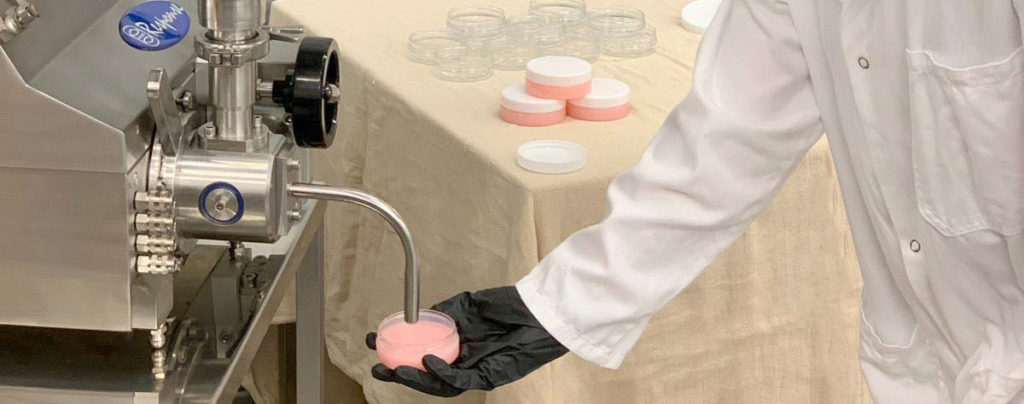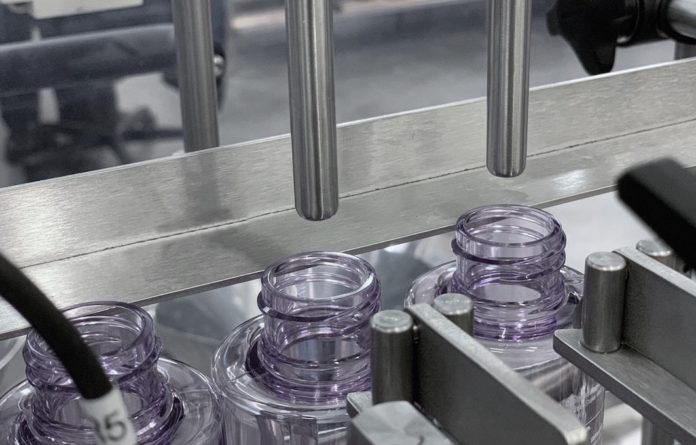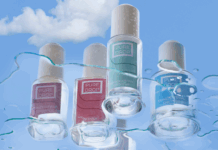Renata Bartekova, product expert and sales director at Adelphi Manufacturing, talks about the challenges facing European cosmetics and skincare manufacturers.
You've been in the industry for over 20 years. What advice would you give to companies wishing to invest in filling machines?
For companies of all sizes, from craftsmen to multinationals, compliance is essential! Increasing regional and international legislation has been accompanied by stricter questioning of hygiene practices. It's never too early to start, and machine suppliers are an excellent place to start.
You mentioned that hygiene is an area that receives particular attention. How does this relate to the filling process for cosmetics and personal care products, and what advice would you give to manufacturers?
When manufacturing dermatological products and products used in sensitive areas such as around the eyes and mouth, it's essential to invest in filling machines built from hygienic, durable materials such as stainless steel. Some suppliers use less expensive construction, and while the initial price difference may suggest that this is a good deal, in the long run it will prove to be a false economy.
Machine parts that come into contact with the product (so-called "wet" parts) must be made of pharmaceutical-grade 316L stainless steel, PTFE and Viton to ensure that no contamination occurs.
You also need to make sure you take into account the time needed to thoroughly clean the machine as often as necessary - filling machines that are quick and easy to dismantle will give an advantage, as the longer the cleaning process takes, the more money is lost in production downtime.
What would you say to cosmetics and personal care manufacturers looking to increase production without overloading their resources?
Due to the pandemic, many industries around the world are experiencing exponential growth, forcing manufacturers to rapidly increase their production capacity. However, taking the filling process from semi-automated to fully automated can be a daunting prospect, with many automated filling lines costing upwards of €60,000 upfront!
At Adelphi Manufacturing, we have developed our "Response" range of scalable machines to solve this problem. The entry-level Benchtop Filler integrates into the automated solutions of the same range, enabling capacity to be increased as required, without rendering the initial investment obsolete. The Benchtop Filler can be separated at any time, if a return to smaller batch production is required.
What about craft businesses operating from smaller premises? Is there a viable growth option for them too?
Absolutely! Just as we saw with cell phone technology in the 2000s, cushioning technology has grown in sophistication while shrinking in size. A good example is a monoblock solution, which integrates both a filler and a capper around a small star, in a compact footprint (as little as 112 cm wide x 81 cm deep). This overcomes the more demanding space requirements of a linear filling and capping line.
Maximizing the achievable output of production space is essential in any business, whatever its size, in order to generate the highest possible revenue. Fully processing up to 16,000 containers per eight-hour shift, a monobloc proves that limited space certainly doesn't mean limited production!
With sustainable manufacturing at the forefront of everyone's minds, what advice would you give to companies looking to source their equipment responsibly?
I insist that environmentally-friendly investment has never been more important; for the survival of the planet and every company. The Internet makes product comparisons fast and efficient, so that consumers can question every aspect of product and process before deciding to make a purchase. Sustainability credentials are now a primary decision-making factor for customers purchasing cosmetics, skincare and other personal care and hygiene products.
The choice of equipment supplier will send a strong and clear message about the company's commitment to sustainable development; this can help or harm its reputation, and therefore its bottom line.
We often hear of companies that want to become more sustainable themselves, but don't know where to start. What first steps would you recommend?
For companies of all sizes, improving resource use and efficiency is an excellent starting point. This will reduce waste and improve their environmental impact, and has the added benefit of improving their return on investment! I always recommend investing in stainless steel equipment for the manufacture and distribution of cosmetics and skincare products. Many of our customers ship their products around the world in stainless steel containers, and the containers can then be shipped back for reuse, or reused at the second site. Stainless steel is one of the most environmentally efficient raw materials, due to its durability and ability to be recycled. The equipment will have an extremely long service life, and even after its lifetime, it should never enter the waste stream.
How can companies investigate a supplier's sustainability credentials before making a purchase?
A simple search on the company's website will often tell you all you need to know! Type "Sustainability" into their search bar and the results will speak for themselves. Look for press releases on the supplier's green innovations; relationships between the supplier and trusted organizations such as the Sustainable Business Partnership; and evidence of the local and global impacts of the supplier's green initiatives.
Suppliers who have won awards for their environmental initiatives are the cream of the crop; they can be a real asset and will often collaborate on social content on the theme of sustainability, which is really valuable to present to customers.
In the wake of containment, how can companies be sure that machine suppliers aren't simply looking for a quick sale and are recommending equipment responsibly?
It's an entirely valid concern - fortunately, there are a multitude of resources available to support a purchasing decision. Case studies, word-of-mouth recommendations and Trustpilot reviews are just some of the resources you can ask suppliers to provide.
Buying from manufacturers who offer remote assistance is another excellent way of guaranteeing high-quality after-sales service.
And finally, I urge companies to invest wisely - avoid buying the cheapest machines on the market, as this can often prove to be a false economy in the long run.









